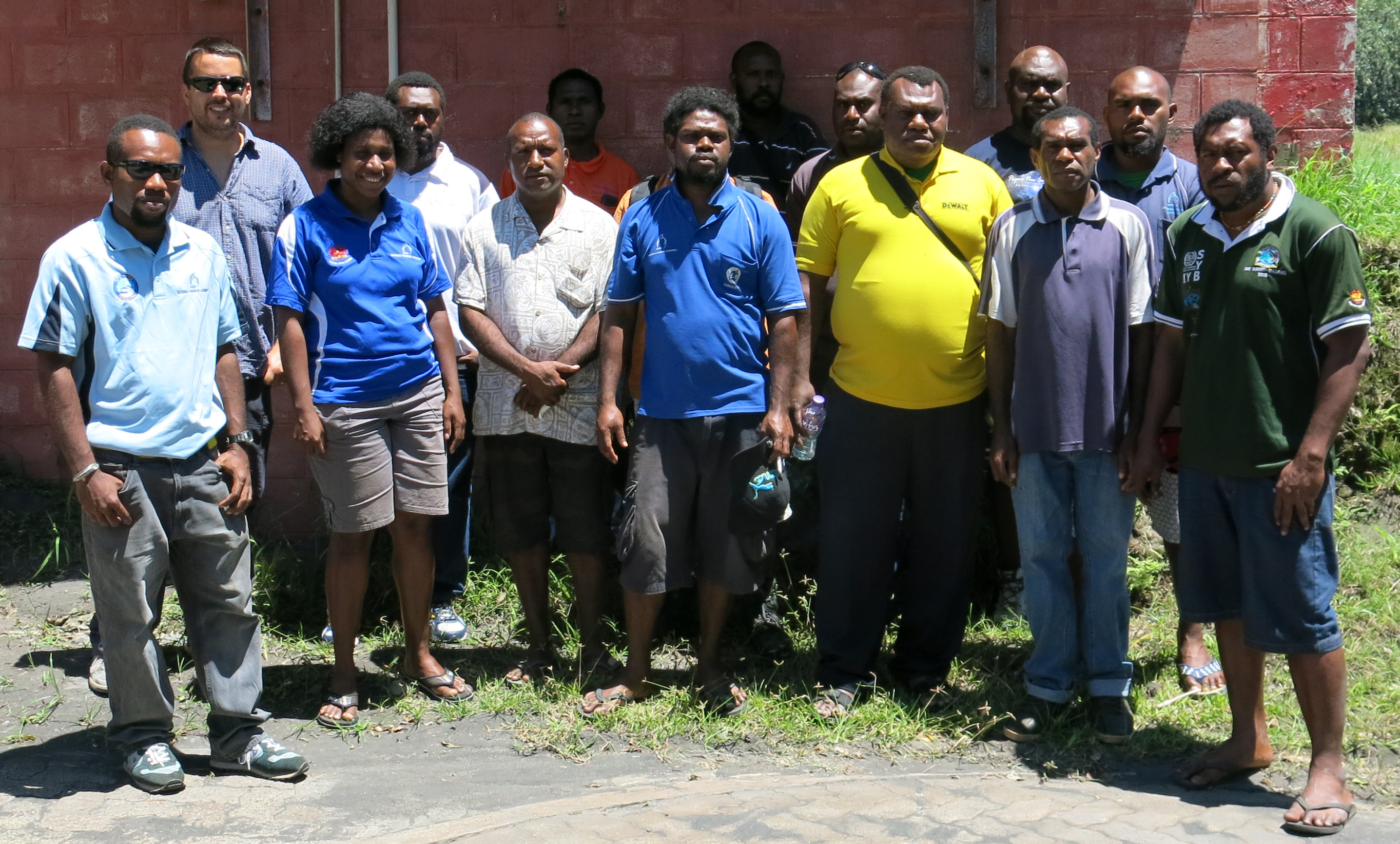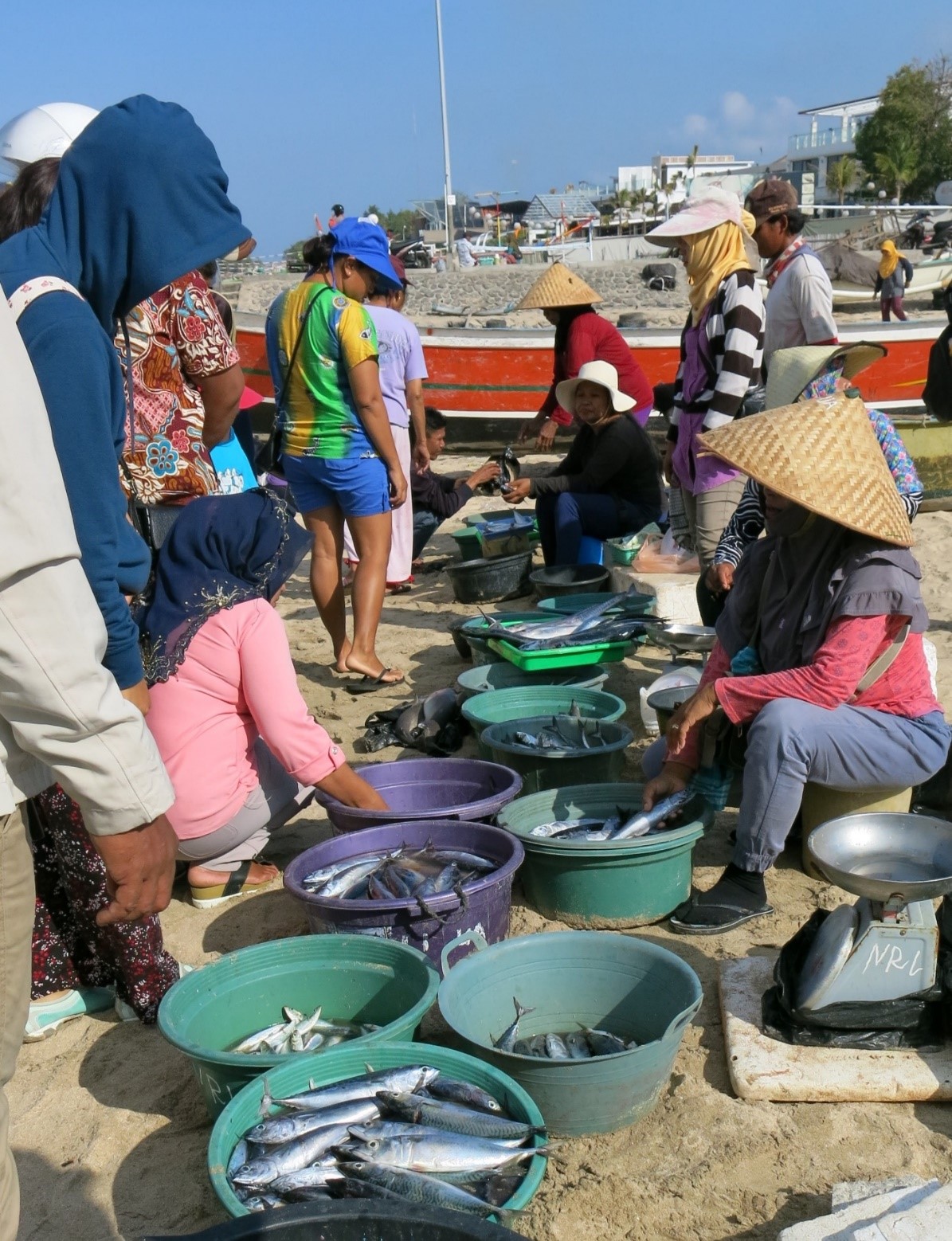Preserving regional biosecurity
Northern Australia, Indonesia and PNG lie within or border the megadiverse Coral Triangle.
Some economically important species including many shark and ray species reproduce slowly and are extremely vulnerable to over-fishing, so promoting sustainable fisheries management is important for future generations and for the health of the marine ecosystems.
Capacity building for local fisheries
We worked with the PNG National Fisheries Authority and University of PNG, and the Ministry of Marine Affairs and Fisheries in Indonesia to provide tools and training in the form of identification guides and workshops for local fisheries staff on how to:

- collect fisheries data
- analyse scientific data and
- communicate such data at national and international levels.
The project aimed to build local knowledge around fishery activities and their likely impacts to the quantity, health and supply of seafood.
Working with local communities, researchers and the PNG Government, we surveyed sharks and rays in the marine waters surrounding PNG. We sent observers on commercial boats and conducted coastal fisheries surveys to find out what species local people were catching and how important those species were to their livelihoods.
Our work with PNG's shark and ray fishery has led to new biodiversity discoveries and will support sustainable management of the fishery into the future.
New management options in PNG and Indonesia
Our research in PNG

We looked at the status of stocks, age, growth and reproductive status for a variety of species. We found some species are at risk of decline, while other populations are quite healthy.
As a result of this work, the number of known species of sharks and rays in PNG's marine waters has increased from around 90 to 132, including 10 newly named species.
The most important outcome was providing management options for the PNG National Fisheries Authority to put into place to ensure shark and rays are managed sustainably into the future. We published a report on the socioeconomic and biological characteristics of PNG's shark and ray fisheries to enable PNG to manage its shark and ray resources sustainably.
We also published the first dedicated field guide to the sharks and rays of PNG. Sharks and Rays of Papua New Guinea brings together new research, information from scientific publications and information from other disparate sources, making it easily accessible in one place.
Our research in Indonesia
The ANFC also collaborated with the Ministry of Marine Affairs and Fisheries in Indonesia to develop fishIDER, a bilingual, educational website aimed to improve the identification skills of fisheries staff tasked with collecting catch data in markets or landing places.
More accurate catch data can result in more effective management of commercial species, ensuring the longevity and sustainability of fisheries resources.
Improving fisheries practises overseas has a direct benefit on Australian fisheries and ecosystems as many economically important fish species, such as Southern bluefin tuna and Albacore tuna, migrate between Indonesia and Australia.
Preserving regional biosecurity
Northern Australia, Indonesia and PNG lie within or border the megadiverse Coral Triangle.
Some economically important species including many shark and ray species reproduce slowly and are extremely vulnerable to over-fishing, so promoting sustainable fisheries management is important for future generations and for the health of the marine ecosystems.
Capacity building for local fisheries
We worked with the PNG National Fisheries Authority and University of PNG, and the Ministry of Marine Affairs and Fisheries in Indonesia to provide tools and training in the form of identification guides and workshops for local fisheries staff on how to:
- collect fisheries data
- analyse scientific data and
- communicate such data at national and international levels.
The project aimed to build local knowledge around fishery activities and their likely impacts to the quantity, health and supply of seafood.
Working with local communities, researchers and the PNG Government, we surveyed sharks and rays in the marine waters surrounding PNG. We sent observers on commercial boats and conducted coastal fisheries surveys to find out what species local people were catching and how important those species were to their livelihoods.
Our work with PNG's shark and ray fishery has led to new biodiversity discoveries and will support sustainable management of the fishery into the future.
New management options in PNG and Indonesia
Our research in PNG
We looked at the status of stocks, age, growth and reproductive status for a variety of species. We found some species are at risk of decline, while other populations are quite healthy.
As a result of this work, the number of known species of sharks and rays in PNG's marine waters has increased from around 90 to 132, including 10 newly named species.
The most important outcome was providing management options for the PNG National Fisheries Authority to put into place to ensure shark and rays are managed sustainably into the future. We published a report on the socioeconomic and biological characteristics of PNG's shark and ray fisheries to enable PNG to manage its shark and ray resources sustainably.
We also published the first dedicated field guide to the sharks and rays of PNG. Sharks and Rays of Papua New Guinea brings together new research, information from scientific publications and information from other disparate sources, making it easily accessible in one place.
Our research in Indonesia
The ANFC also collaborated with the Ministry of Marine Affairs and Fisheries in Indonesia to develop fishIDER, a bilingual, educational website aimed to improve the identification skills of fisheries staff tasked with collecting catch data in markets or landing places.
More accurate catch data can result in more effective management of commercial species, ensuring the longevity and sustainability of fisheries resources.
Improving fisheries practises overseas has a direct benefit on Australian fisheries and ecosystems as many economically important fish species, such as Southern bluefin tuna and Albacore tuna, migrate between Indonesia and Australia.
